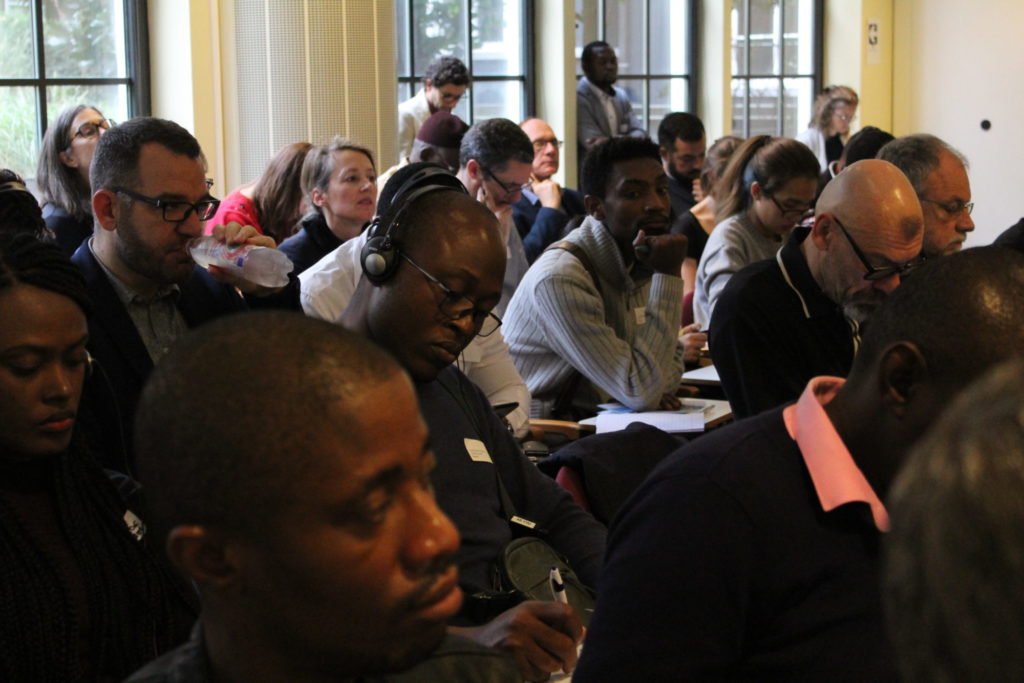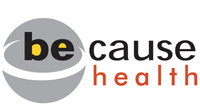
Be-cause health international conference, 23 – 24 March 2023
- 23 March, 2:00 – 5:30 pm (CET): online
- 24 March, 2:00 – 5:30 pm (CET): hybrid
EXTENDED DEADLINE to submit: Our call for abstracts and organized sessions for the 2023 International Be-cause health conference ‘Breaking taboos in global health’ has been extended until 16 January 2023, midnight, CET (Brussels time). Please, submit your proposal via this submission form.
Read / Download this call in Pdf:
CONCEPT NOTE
Too many challenges in our global health activities remain unspoken today: colonisation and power, discrimination and racism, gender inequality, migration and diaspora, unequal access to essential health services and quality medicines, commercialisation of care, exclusion, climate justice, (health) equity and (de)growth.
During the 2023 Be-cause health international conference, we will deal with “inconvenient truths” openly and respectfully. We will reflect on the future of global health, on the future role of development cooperation and the role global health stakeholders could/should play in this. We will share experiences, cases, and research results, we hope to land on innovative solutions to real problems while looking beyond the walls of sectors, regions, dogmas, and political beliefs.
Be-cause health, a platform of stakeholders in global health and healthcare both in Belgium and in Low- and Middle-Income Countries (LMICs), wants to go the extra mile. By building on previous Be-cause health events (for instance on urban health, decolonisation, access to quality-assured medicines, SRHR, mental health, health inequity and injustices related to the climate emergencies, etc.), we will further explore global health topics that are left aside, ignored, or only addressed with “a High-Income Country (HIC) gaze.”
With this 2023 conference we want to break taboos, gather the knowledge, and practice there is about them, exchange insights and results, learn from successes and failures to rethink the future of global health, by giving a voice to all.
SUGGESTED TRACKS
TRACK 1 Commercialisation of health, healthcare, and health products
The commercialisation of health, healthcare and health products has undeniably taken off in recent decades. Private stakeholders, both for-profit and non-profit, have been taking on a more pronounced role in the health sector. Commercial approaches to healthcare delivery, governance, and financing have become more dominant in the global health policy arena.
Private (philanthropic) and commercial stakeholders are increasingly shaping the global health policy landscape, public discourse, and the government regulatory approaches. In this track we explore the implications of these developments on the right to health, access to healthcare and health products of the world’s population.
Thought-provoking questions
- Does commercialisation of health, healthcare and health products lead to health policies that are less determined by human rights concerns and public interest?
- What are the benefits or pitfalls of involving private stakeholders in the health sector? What could a fair public-private partnership look like?
- Are the voices of the communities integrated in the design of today’s health policies and practice?
- Are the dominant paradigms in global health today, such as Universal Health Coverage and health security, contributing to the commercialisation of health, healthcare, and health products?
Keywords: commercialisation of health / privatisation of health / common goods / health financing / commercial determinants of health / social protection in health / universal health coverage / access to care
TRACK 2 Addressing power imbalances in global health
Health equity and healthcare for all has become a key landmark goal in global health theory, policy, and practice. While national and international stakeholders are struggling to find solutions so that everybody can have access to the highest standard of health, they are confronted by structural barriers sustained by enduring power asymmetries. These power imbalances are reinforced by (post-)colonialism, supremacist ideologies and practices, racism, patriarchy/misogyny, xenophobia, and others, which are, in turn, embedded in today’s global health theory and practice. There is a history of contestation between the individual biomedical approach vis-a-vis a more comprehensive or so-called ‘traditional’ understanding of health.
The dominant pathogenic paradigm with its focus on a pure biomedical approach rose worldwide in colonial times and continues its dominance in ‘post-colonial’ applications. This includes an attempt to replace all ‘local’ therapies, with Western biomedical ‘modern’, presented as ‘superior’, therapies, and a lack of integration of different views in a holistic approach.
Thought-provoking questions
- Whose health is ‘global health’? Whose ideas on global health are coming through?
- Do international health institutions and organisations play a role in sustaining the coloniality of power?
- Do you have examples of global health stakeholders that made a paradigm shift from a dominantly biomedical, positivist and individualist approach to health and healthcare to one centred around tackling structural inequities that provides space for a non-hierarchical and informed pluriversity of knowledge systems and practices?
Keywords: power imbalances / coloniality / misogyny / racism / supremacy / xenophobia / autonomy of local stakeholders in external health interventions / local practices of medicine / dialogue / integration
TRACK 3 Including the excluded
The right to health and access to quality healthcare are human rights. However, a considerable group of people and their health problems slip through the cracks of our healthcare net. Their right to health is ignored and we are not aware of their health problems. For instance, how many people know that 17% of the world population is using 90% of the available morphine for pain control? And how many know that thousands of children die from rabies every year?
Thought-provoking questions
- Whose health matters?
- Do you participate in an experience or research to reach out to, for instance, pregnant women, isolated communities, communities in conflict, homeless, mentally ill people, transit migrants, undocumented migrants, prisoners, street children, sex workers, drug addicts or other often excluded groups?
- What are your best practices to care for dying people and the dead or the bereaved? And what are the obstacles to implementing them?
- How to achieve quality and respectful maternity care for all?
Keywords: homeless people / mentally ill people / (transit) migrants / prisoners / street children / sex workers /drug addicts / people living with disabilities / pregnant women / dying people / elderly people / people in need of palliative care / people living with neglected tropical diseases
TRACK 4 Impact of innovation, recent technologies, and Research & Development
With great speed, science is advancing, and technologies are developed that influence our health: data industry, machine-learning, artificial intelligence, collective intelligence, data mining, nanotechnology and nano-medicine, micro-implants and sensors, mRNA techniques, 3D printing, smart technologies, remote patient monitoring, personalised medicine, digital therapeutics, Internet of Medical Things, lab-on-a-chip, healthcare digital assistants, etc. However, the gap between the LMICs and the HICs remains huge. For instance, the most recent and innovative medicines for cancer are unavailable for the majority of those in low-income countries, and even if monkeypox is more severe in the Democratic Republic of the Congo (DRC) than in Europe, the vaccine is not available in DRC.
Thought-provoking questions
- Isn’t it all for the happy few? Who benefits from the progress? Are recent technologies a shortcut to Universal Health Coverage or other drivers of inequality?
- Do you have examples where digitisation has led to better quality care and better health for all outcomes?
- How can you ensure democratic control to protect patient rights, user’s privacy, etc.?
- What are the drivers of Research and Development in health?
Keywords: innovation / public health / digitisation / recent technologies / artificial intelligence / machine learning / nano-medicine / remote patient monitoring / digital assistants / intellectual property / TRIPS / patent pooling / pricing policies / research funding
TRACK 5 Climate justice as a prerequisite for health equity
Climate risks are carried out unjustly. Global warming is a cause of health inequality. The poorest half of the world’s population is only responsible for 10% of carbon emissions. However, they already suffer the most from the impact of the climate emergency. In the global health sector, the link between health inequity, the climate crisis and social injustice is seldom directly made. To tackle the health crisis induced by the complex climate emergency, we need to fight social injustice and go beyond purely technical (including biomedical), narrowly formulated, solutions and treatments, and consider traditional, indigenous and community initiatives, including in global and local health.
Thought-provoking questions
- How to complement / prioritise short term initiatives to respond to urgent health needs because of climate disasters with long-term strategies needed to face the challenges of the climate emergency?
- The global healthcare sector is responsible for 4.6 % of total greenhouse gas emissions. What do you do at institutional level and in your own health activities and practices to stop the use of fossil fuels?
- Do you have examples of contextualised research on the link between global warming and health?
Keywords: climate justice / degrowth / community resilience / health system resilience / health equity / inclusiveness
Call for Abstracts and Organised Sessions
Submissions
If you submit an abstract for an individual presentation, your submission will be considered by the conference selection committee and be put alongside the other individual submissions for coherence and added value.
We invite interested stakeholders to submit individual (scientific) abstracts, or proposals for organised sessions on recent (research) findings, policies, case studies, stories, poems, imagery, or songs that show how we can break taboos in global health and make the unmentionable debatable. Choose one of the suggested tracks, or feel free to suggest another topic that aligns with the conference theme.
If you submit a proposal for an organised session, your submission will be considered by the conference selection committee and be put alongside the other proposals for added value. An organised session involves a mix of speakers and a session format. During an organised session you coordinate the complete session (1h). For this you will be working together with the conference task force.
We specifically urge our friends and colleagues of LMICs, young professionals, women, representatives of indigenous population groups and people living with disabilities to submit their work.
Deadline to submit is 6 January 2023 – midnight, CET (Brussels time) via this submission form.
Online & hybrid
Consider that all sessions will be online or hybrid, and that all of them will be sent out via Zoom to an online audience.
Simultaneous interpretation
Two of the four planned parallel sessions will be translated from English to French and back. The other two sessions will be able to run in one of both languages, considering the language preference of the registered participants.
Speaker travel information
A limited number of travel grants can be made available to on-site speakers whose abstracts have been accepted for an oral or poster presentation. Given the urgent need to halt the climate emergency, we ask speakers to limit air travel. Air travel can only be supported when the speaker is able to integrate the conference participation in a wider visit programme to Europe.


